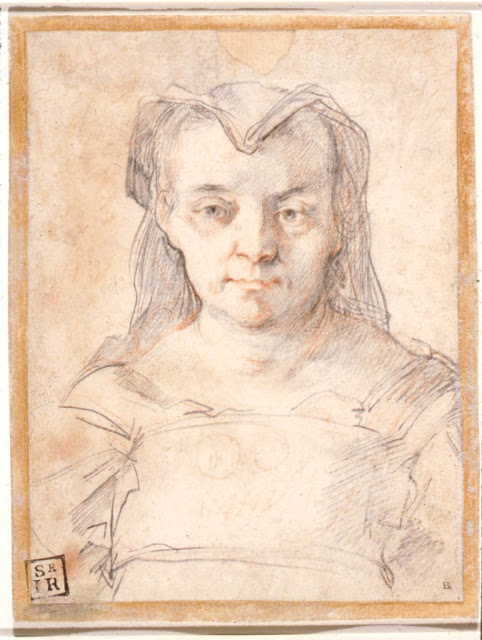 |
| Hellenistic Greece Head of Female Satyr 3rd-2nd century BC marble Metropolitan Museum of Art, New York |
 |
| Egypt (Fayum) Mummy-portrait of a man AD 80-120 tempera on panel British Museum |
 |
| Egypt (Fayum) Mummy-portrait of a woman AD 200 tempera on panel Harvard Art Museums |
"Darknesse and light divide the course of time, and oblivion shares with memory a great part even of our living beings; we slightly remember our felicities, and the smartest strokes of affliction leave but short smart upon us. Sense endureth no extremities, and sorrows destroy us or themselves. To weep into stones are fables. Afflictions induce callosities, miseries are slippery, or fall like snow upon us, which notwithstanding is no unhappy stupidity. To be ignorant of evils to come, and forgetfull of evils past, is a mercifull provision in nature, whereby we digest the mixture of our few and evil dayes, and our delivered senses not relapsing into cutting remembrances, our sorrows are not kept raw by the edge of repetitions. A great part of Antiquity contented their hopes of subsistency with a transmigration of their souls. A good way to continue their memories, while having the advantage of plurall successions, they could not but act something remarkable in such variety of beings, and enjoying the fame of their passed selves, make accumulation of glory unto their last durations. Others rather then be lost in the uncomfortable night of nothing, were content to recede into a common being, and make one particle of the publick soul of all things, which was no more then to return into their unknown and divine Originall again. Aegyptian ingenuity was more unsatisfied, contriving their bodies in sweet consistences, to attend the return of their souls. But all was vanity, feeding the winde, and folly. The Aegyptian Mummies, which Cambyses or time hath spared, avarice now consumes. Mummie is become Merchandise, Mizraim cures wounds, and Pharoah is sold for balsoms."
– Sir Thomas Browne (1605-1682), from Hydriotaphia, or, Urne Buriall
 |
| Giovanni della Robbia Head of Christ ca. 1520 glazed terracotta Museum of Fine Arts, Boston |
 |
| attributed to Pietro Perugino Head of the Virgin ca. 1480 drawing Royal Collection, Great Britain |
 |
| Lorenzo di Credi Head of a youth ca. 1500 drawing Museum of Fine Arts, Boston |
 |
| Federico Zuccaro Bust of a woman ca. 1595-1605 drawing Museum of Fine Arts, Boston |
"And therefore restlesse inquietude for the diurnity of our memories unto present considerations, seems a vanity almost out of date, and superanuated peece of folly. We cannot hope to live so long in our names, as some have done in their persons, one face of Janus holds no proportion unto the other. 'Tis too late to be ambitious. The great mutations of the world are acted, or time may be too short for our designes. To extend our memories by Monuments, whose death we dayly pray for, and whose duration we cannot hope, without injury to our expectations, in the advent of the last day, were a contradiction to our beliefs. We whose generations are ordained in this setting part of time, are providentially taken off from such imaginations. And being necessitated to eye the remaining particle of futurity, are naturally constituted unto thoughts of the next world, and cannot excusably decline the consideration of that duration, which maketh Pyramids pillars of snow, and all that's past a moment."
– Sir Thomas Browne (1605-1682), from Hydriotaphia, or, Urne Buriall
 |
| Hellenistic Greece Roundel with Head of Perseus 3rd century BC silver bridle ornament Museum of Fine Arts, Boston |
 |
| Hellenistic Greece Roundel with Head of Medusa 3rd century BC silver bridle ornament Museum of Fine Arts, Boston |
 |
| Hellenistic Greece Roundel with Head of Herakles 3rd century BC silver bridle ornament Museum of Fine Arts, Boston |
 |
| Giulio Bonasone after Raphael Portrait of Raphael ca. 1545-50 engraving Museum of Fine Arts, Boston |
 |
| Giulio Bonasone Portrait of Pietro Bembo ca. 1547 engraving Museum of Fine Arts, Boston |
 |
| Anonymous painter working in England Portrait of Sir William Butts ca. 1540-50 tempera and oil on panel Museum of Fine Arts, Boston |
 |
| Rome Portrait of Marciana, sister of the Emperor Trajan AD 130-138 marble Metropolitan Museum of Art, New York |
"Severe contemplators observing these lasting reliques, may think them good monuments of persons past, little advantage to future beings. And considering the power which subdueth all things unto it self, that can resume the scattered Atomes, or identifie out of any thing, conceive it superfluous to expect a resurrection out of Reliques. But the soul subsisting, other matter clothed with due accidents, may salve the individuality . . . "
– Sir Thomas Browne (1605-1682), from Hydriotaphia, or, Urne Buriall